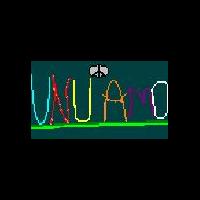Поруке: 147
Језик: English
k1attack (Погледати профил) 11. март 2010. 15.51.54
You choose!
jan aleksan (Погледати профил) 11. март 2010. 16.03.27
Bon Wen seems a bit set aside.
k1attack (Погледати профил) 11. март 2010. 16.05.58
jan aleksan:... Toki IO, Ta Ti...What???
Bon Wen seems a bit set aside.
jan aleksan (Погледати профил) 11. март 2010. 16.13.35
k1attack:there is no activity since the last time I vizited the website, several months ago.jan aleksan:... Toki IO, Ta Ti...What???
Bon Wen seems a bit set aside.
(Toki IO and Ta Ti are other examples of tokipona-like languages)
k1attack (Погледати профил) 11. март 2010. 16.15.56
jan aleksan (Погледати профил) 11. март 2010. 16.51.11
k1attack:And what about Puna, Bon Wen and Vuyamu?They are on the top of my list, with Konya, Ilomi and Kaqwan
Greyshades (Погледати профил) 11. март 2010. 17.17.11
k1attack:I support Esperanto, but I admit, the minimalistic languages also look really tempting. They're not for idiots, I was wrong. They're made just for fun!!!To me, it seemed that "object-moving-fast" makes more sense, especially when reading. The four parts of speech really help with grammar, and I think "categorizing" the roots by order of importance (isn't that how they classify things in the animal kingdom?) works well.
I think Vuyamu should add an extra word, "li", which could be used before and after a proper name, since every other syllable has a meaning.
Also, I think adjectives should go before a noun, not after it, in order to make compund words easier to understand. E.g. it should be "fasting-moving-object" rather than "object-moving-fast" and the new name of the language will be "Muyavu" (li muyavu li" in the language itself) instead of "Vuyamu".
The 5 "m" roots (ma, mo, mu, me, mi) are sort of quantifiers in my opinion. In my work, I combined "ma" and "mo" into just "mo" because they have the same essential meaning (each/every).
However your idea of using "li" for titles would solve a lot of problems and I think it is great
 and I'm glad to see your interested in the language.
and I'm glad to see your interested in the language.And for your curiosity:
1. Vuyamu
2. Toki Pona
3. Bon Wen
4. Puna
ceigered (Погледати профил) 12. март 2010. 04.38.53

(although that language seems to be currently in a state of developmental flŭ - last time I checked with Jens (a good while ago, maybe May 09?), the creator, he was investigating different orthographies and I think we had a discussion on, for example, the pronunciation of "h" (which is basically a stand in for a whole lot of (loosely) guttural sounds all the way to the alveolar approximate R (English R), but you might as well pronounce it "ĥ" or "h").
But Neo Patwa, strictly speaking, is more pidgin than Toki-Pona-ish (which is conversly also like a pidgin but not the same as Neo Patwa).
BTW - This looks interesting. Not necessarily promising, but interesting as it provides insight as to how a world language may be formed - over time.
This also looks very interesting, not so much because it answers the question of the essay (it doesn't seem to do so very well, at least, I didn't really understand why the initial IAL phonology should be Western-biased - I mean, I kind of do, but using my own reasoning rather than the article's) but because it discusses some interesting topics in language creation.
k1attack (Погледати профил) 12. март 2010. 13.08.10
Greyshades:Why Vuyamu? Why not the others?k1attack:I support Esperanto, but I admit, the minimalistic languages also look really tempting. They're not for idiots, I was wrong. They're made just for fun!!!To me, it seemed that "object-moving-fast" makes more sense, especially when reading. The four parts of speech really help with grammar, and I think "categorizing" the roots by order of importance (isn't that how they classify things in the animal kingdom?) works well.
I think Vuyamu should add an extra word, "li", which could be used before and after a proper name, since every other syllable has a meaning.
Also, I think adjectives should go before a noun, not after it, in order to make compund words easier to understand. E.g. it should be "fasting-moving-object" rather than "object-moving-fast" and the new name of the language will be "Muyavu" (li muyavu li" in the language itself) instead of "Vuyamu".
The 5 "m" roots (ma, mo, mu, me, mi) are sort of quantifiers in my opinion. In my work, I combined "ma" and "mo" into just "mo" because they have the same essential meaning (each/every).
However your idea of using "li" for titles would solve a lot of problems and I think it is greatand I'm glad to see your interested in the language.
And for your curiosity:
1. Vuyamu
2. Toki Pona
3. Bon Wen
4. Puna
Greyshades (Погледати профил) 12. март 2010. 15.02.50


